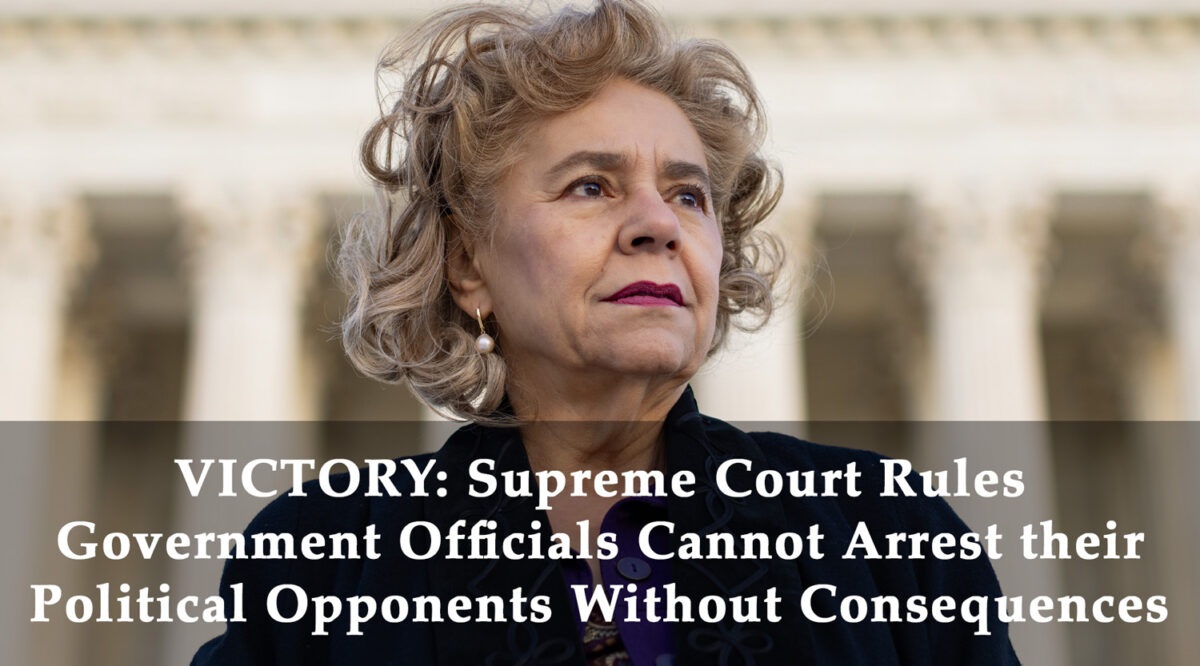I am happy that the U.S. Supreme Court ruled the way it did, letting Sylvia Gonzalez proceed with her litigation.
But why was there even a question?
The case is Gonzalez v. Trevino. It started in 2019 when Gonzalez was elected to the council of Castle Hills, Texas. After winning, she led a petition drive to remove the city manager from office for abusing employees and neglecting his duties.
Soon the mayor and the police chief were falsely accusing her of tampering with a government record. She was arrested and jailed. But the district attorney dropped the charges after a day.
After Gonzalez resigned from the council because of “ongoing intimidation,” the Institute for Justice helped her file a federal lawsuit against the town for selective prosecution.
A lower court had gone along with the city’s request to dismiss the case. The rationale was that Gonzalez had not shown that others who trivially “mishandled a government petition” in exactly the same way Gonzalez did were not then arrested.
In reversing this decision, the Supreme Court said that “the demand for virtually identical … comparators goes too far.” Plausible evidence that Gonzalez had been singled out for retaliation, thus violating her First Amendment rights, was enough to let the case proceed.
It’s an important issue for all of us, not only for Sylvia Gonzalez. As IJ stresses, this kind of retaliation “against citizens engaging in protected speech or activity” is more common than we may suspect.
This is Common Sense. I’m Paul Jacob.
Photo provided by Institute for Justice
—
See all recent commentary
(simplified and organized)
